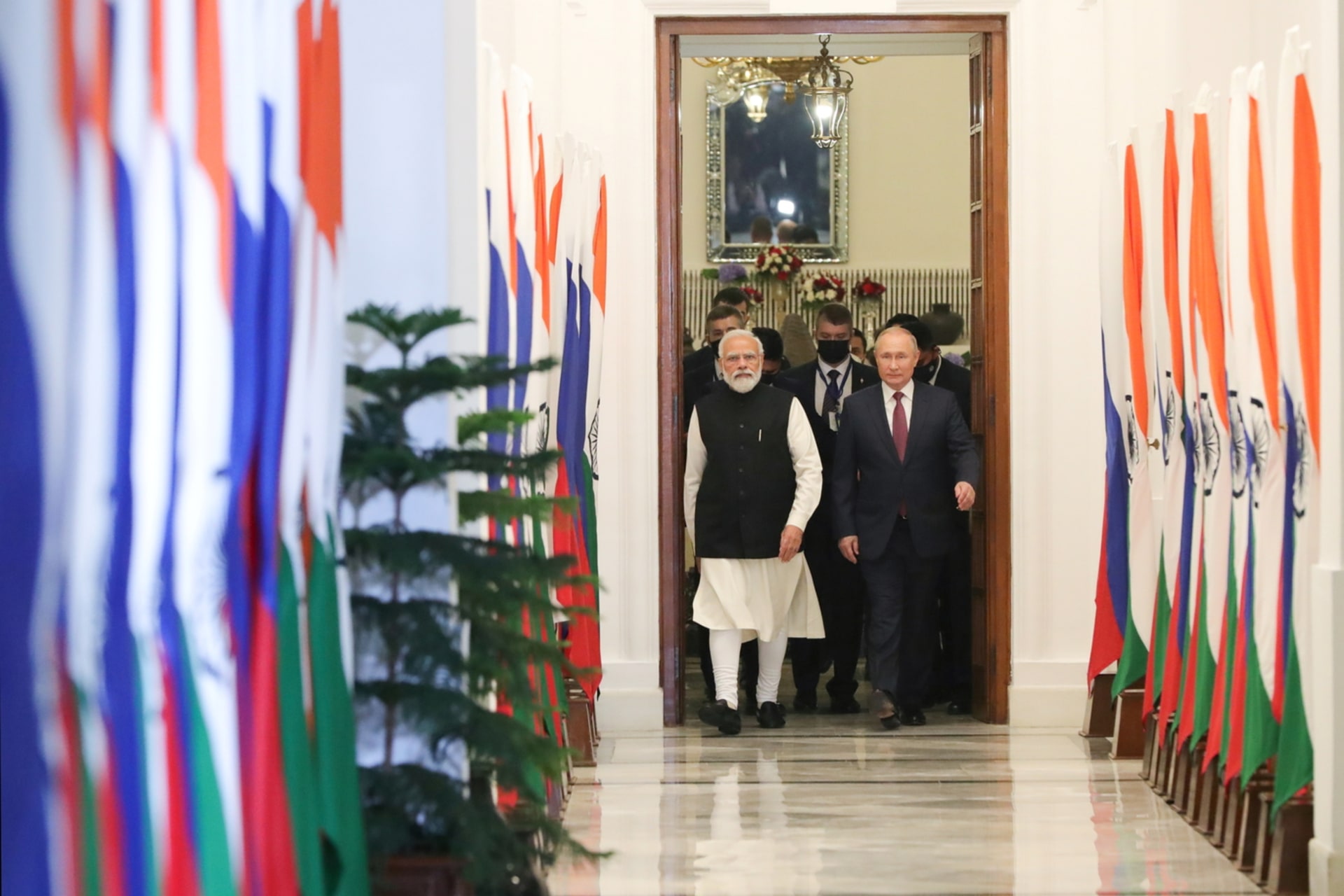Can India Afford Nonalignment After Russia’s Invasion of Ukraine?
India has historically refused to become enmeshed in superpower politics, but Russia’s invasion of Ukraine should force a rethink.

By experts and staff
- Published
Experts
![]() By Manjari Chatterjee MillerSenior Fellow for India, Pakistan, and South Asia
By Manjari Chatterjee MillerSenior Fellow for India, Pakistan, and South Asia
India is a growing power in an increasingly multipolar world. As disputes between countries grow more complex (and perhaps more common), they will want New Delhi’s support. India may not like this; the country has a long history of avoiding alliances, and it would rather focus on its own development while maintaining friendly ties with major international players. But international politics is not often kind to those who seek to remain on the sidelines without an ideological justification.
As Russia’s invasion continues, New Delhi has a lot to lose both economically—oil and gas markets will see unprecedented price surges—and politically. India’s friendly relations with Russia predate the Cold War—and even its own independence in 1947. For decades, this support helped India steady itself in a world where New Delhi faced constant threats from Pakistan, a serious menace from China, and indifference from the West. Today, New Delhi does not want to ruin its historical ties to Moscow, which is also a significant source of military equipment. (Over 70% of India’s military hardware comes from Russia, and last year, Russia delivered to India S-400 air defense systems.) To a certain extent, New Delhi even understands why Russia does not want NATO in its backyard; India wants to maintain its own sphere of influence in parts of South Asia. And it certainly does not want to push Russia into a stronger alignment with China. India wants to avoid a U.S.-Chinese cold war—despite their conflicts, the latter country is India’s second-largest trading partner—and it sees a strong Russia as a way to prevent a bipolar world.
But India also knows that it needs new international partners. And over the last two decades, it has found one in Washington. Their partnership is driven by many factors, but one of the most important is India’s past and resurgent rival: China. The two countries now regularly coordinate on regional security through the Quad, which makes it much more costly for New Delhi to openly support Moscow in the standoff over Ukraine.
In India’s ideal world, the United States and Russia would both balance against China, and that will be impossible if they are in conflict. In reality, India is the only big power that can draw on decades of friendship to pressure Moscow and tell it hard truths. New Delhi is uniquely positioned not just to shore up its own geopolitical position but also to prevent a deeply destabilizing and extremely violent conflict. India’s current position, which is trying to avoid the crisis in order to maintain “strategic autonomy,” won’t wash. Rather than advancing New Delhi’s interests or enhancing its global stature, staying silent will make India look like an opportunistic and self-interested partner, not worthy of greater cooperation or support.
India should instead seize the initiative. New Delhi and Moscow have had friendly ties for decades, and the former can use the goodwill it has accumulated to quietly pressure Russian President Vladimir Putin into finding a diplomatic, face-saving solution. This may not come naturally to India, but stopping a full-scale war is critical to India’s global position.
For more on India’s response to the crisis in Ukraine, read my recent Foreign Affairs article here.
